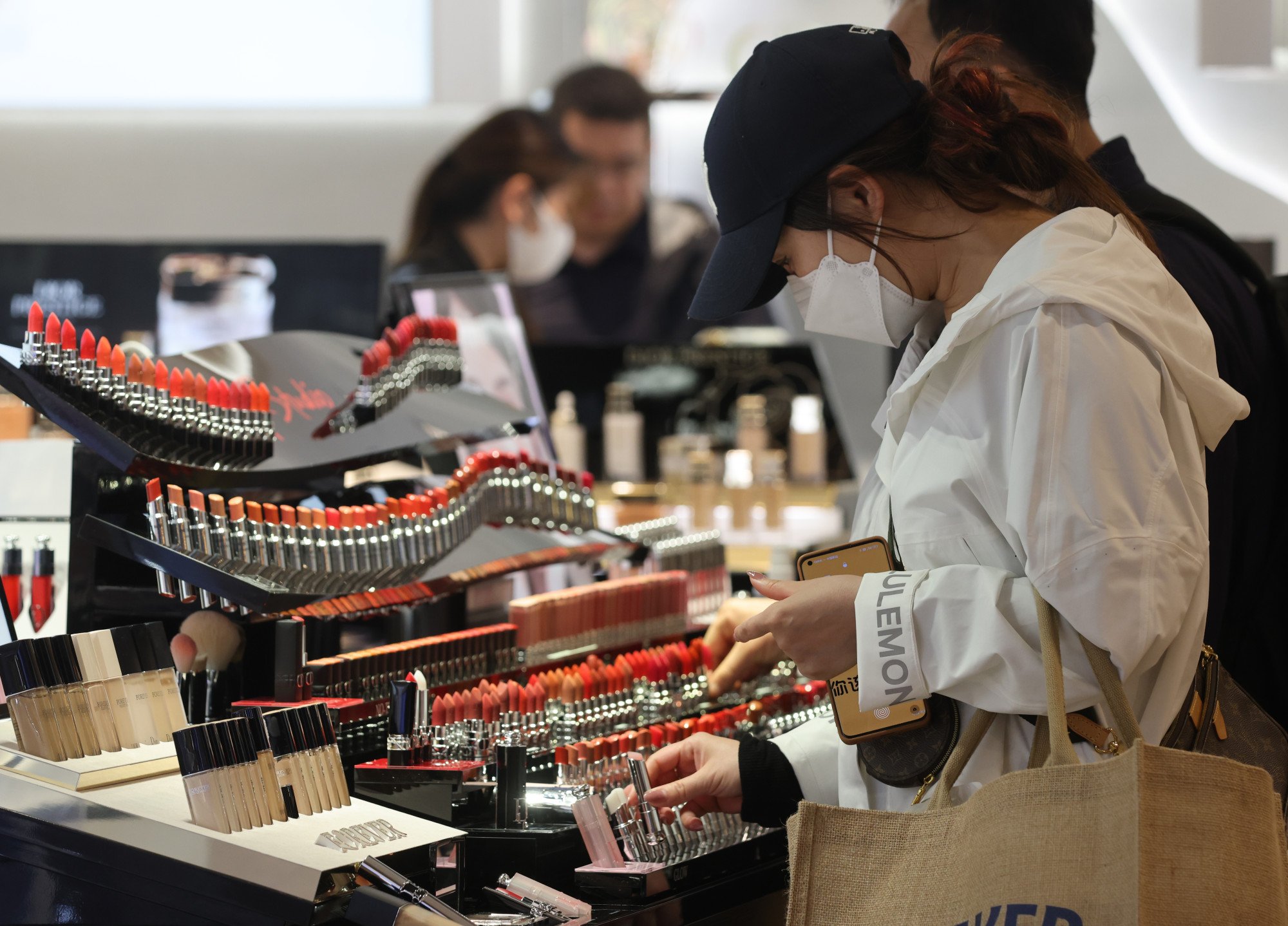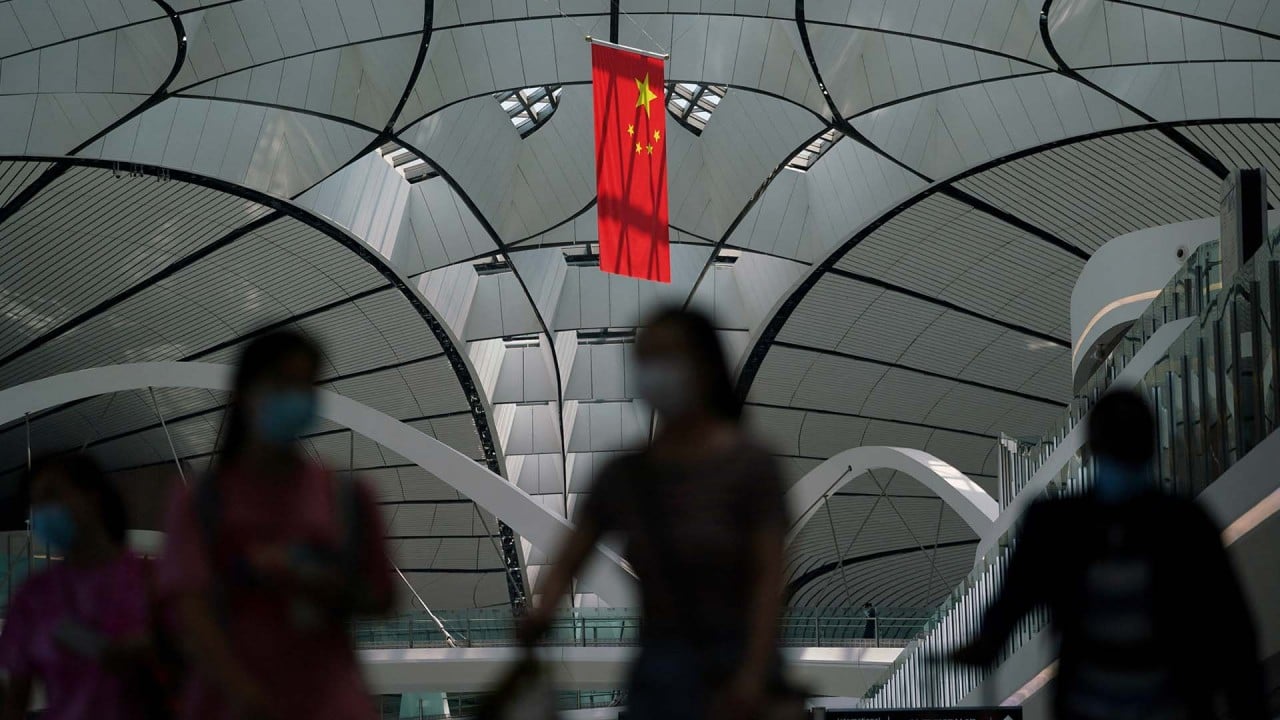
Shopping paradise no more? Mainland Chinese tourists, travel agents disagree over Hong Kong’s appeal as demand for city trips drops
- Hong Kong’s tourism sector insists tax-free shopping items are still appealing to visitors, but mainland counterparts urge city to change its ways
- ‘Tourists prefer to choose long-distance tours such as Xiamen, Yunnan, and Wuyuan,’ says one mainland travel agent
Demand for Hong Kong tour packages among mainland Chinese travellers has failed to take off despite the reopening of the border, travel agents have said, while some visitors have complained the city has lost its edge as a shopping paradise.
The situation has sparked a debate between Hong Kong’s tourism sector, which insists that tax-free shopping items are still appealing to mainland travellers, and its counterpart across the border urging the city to change its strategy to draw in visitors.
The number of mainland tourists surpassed 1 million last month after the gradual return of cross-border travel over the first two months of the year. But the figure was still a far cry from the levels before the Covid-19 pandemic and 2019 anti-government protests, with 51 million mainland visitors heading to the city in 2018.
More coupons, discounts in HK$20 million injection to Hong Kong tourism drive
Jia Jia, a travel influencer with 1 million followers on Chinese social media, said the city’s tourism and service industries should rethink their strategy for mainland visitors, adding their eagerness to visit Hong Kong had faded in recent years as their view of the city as a top travel destination had diminished.
“In fact, many mainland consumers, especially young people, are not even interested in going shopping in Hong Kong, because shopping there is not as good as before,” he said.
The influencer said travel agencies were still running low-price shopping tours to the city despite the mainland’s e-commerce platforms offering goods from the rest of the world at cheaper prices than Hong Kong.
Jia Jia, who operates trips to the city that involve taking tourists to destinations tailored to their preferences in high-end vans, said Hong Kong should focus on attractions for young mainland visitors who have a growing interest in hiking, camping and experiencing international culture.

Che Zong, who runs Changchun Culture International Travel Agency in northeastern China’s Changchun, said sales for Hong Kong tours were lower than those for other destinations.
“Tourists prefer to choose long-distance tours such as Xiamen, Yunnan, and Wuyuan, and the prices are more expensive than Hong Kong routes,” Che said.
“There are several reasons for it. First, mainland tourists’ negative impression of Hong Kong, which was formed in the past years, continues to affect their willingness to travel,” she said, referring to the city’s social unrest in 2019.
“Self-guided travelling is also very convenient, and current products offered by travel agencies to Hong Kong-Zhuhai-Macau are not attractive or competitive,” Che said.
Visas resume, travel booms? Hong Kong tourism sector hopeful as mainland reopens
Wang Ji, an agent with Ya Tai International Travel Agency in Jilin, said the price of a six-day trip to Hong Kong and Macau was around 3,000 yuan (US$436) to 4,000 yuan.
“Compared with long-distance travel routes, to west China, and Southeast Asia, in fact, it is not expensive, but not welcomed among tourists,” she said.
Mainland resident Li Wang, who used to visit Hong Kong for shopping, said she felt shocked and unhappy about her last trip to the city earlier this month.
“Cosmetics and skincare products in Hong Kong are much more expensive now, compared with the mainland’s live-streaming e-commerce shopping platforms,” she said.
“I bought a bottle of rose hip seed oil priced at over HK$400 [US$50] in Hong Kong, but I found the same one for less than 300 yuan on the mainland. I feel very unhappy about that.”
Chinese social media users have also expressed mixed feelings about the city, with e-commerce app Xiaohongshu featuring a hashtag called “Hong Kong service attitude” that received 18,000 views and included many posts complaining about poor service in the city.
One post titled “Hong Kong service is dead, other than business trips I won’t be going there again” attracted more than 200 comments debating the issue.
“We also have shops on the mainland with attitude problems, but we don’t publicise it. Why is it when we talk about Hong Kong then we have to publicise it? Have you ever thought it’s because there’s a certain prejudice [towards the city]?” a commenter said.
But more popular hashtags like “Hong Kong tourism” have received more than 20 million views, with the first 50 posts portraying the city in a positive light.
Lack of flights hampering Hong Kong tourism industry’s recovery, experts say
Tourism sector veteran Freddy Yip Hing-ning, president of the Hong Kong Travel Agent Owners Association, said the city remained appealing since it had not imposed taxes on products such as luxury goods, cosmetics and jewellery.
“Some people think goods in Hong Kong are not cheap compared with the mainland, that’s not totally true. Some items are still much cheaper than the mainland,” he said.
Yip added that mainland tourists had been queuing up at shops around the city since they trusted the quality of the goods here.
Addressing claims about worsening hospitality, Yip said restaurants and shops generally treated tourists better now after experiencing years of difficulties during the pandemic.
“They treasure whoever comes to Hong Kong to dine or shop,” he said.

Local travel agency owner Teddy Chung Wai-tong agreed with Yip.
He said he had heard “zero complaints” from mainland tourists so far, with the city since February having already welcomed some 1,100 tours involving visitors from across the border.
But Chung also said he believed mainland tourists were spending less money in Hong Kong and in other places such as Japan, Malaysia and Singapore.
“They are not too focused on luxury items like diamonds and gold watches … instead, they are buying more daily products like cosmetics and medicine,” he said.
Hong Kong leader eyes ‘joint tour’ market with Macau, multi-city travel in bay area
Arrivals to the city more than doubled from 498,689 in January to 1.46 million in February – the first time the monthly figure surpassed 1 million since the beginning of the Covid-19 pandemic in early 2020.
Among them, the number of mainland visitors soared by almost four times from 280,525 in January to 1.10 million in February.
In a bid to revive the city’s tourism trade, the Hong Kong earlier announced it would it allocate HK$100 million worth of coupons for drinks, dining and shopping to visitors under the “Hello Hong Kong” campaign.




